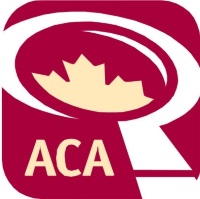Association of Canadian Archivists (ACA) 2018 Conference
Date
June 7, 2018 09:30 - June 9, 2018 23:59
Location
Edmonton
Details
Website: http://archivists.ca/content/annual-conference
Theme: Truths, Trust and Technology
The 2018 ACA Conference will be held in Edmonton, Alberta, at the Chateau Lacombe. It will engage with the theme truths, trust and technology. The truth – whatever that is – is messy these days. In the “post-truth” era, lies can seem more convincing than facts, and in an era of discourse on decolonization, Canadians are reflecting on new truths about historical facts. “Truths” become “lies” depending on context and interpretative lens. The very existence of facts may even be open to question. Contributing to the messy truth is technology. Social media propagates “click bait” and state sponsored misinformation as news. Politicians use instant messaging apps to avoid public accountability. Cloud technology continues to create confusion about ownership and integrity of records. Cybersecurity risks are on the rise. Black boxed algorithms parse personal information, generating models that predict human behaviour. Big data becomes bigger. These technical infrastructures – social media, cloud technology, algorithms and others – that gather, store and analyze data have become increasingly complex, often invisible, and hidden infrastructures. Archivists are challenged to understand them and to preserve and provide access to records created or stored in them.
At the same time, archivists are embracing technology to preserve digital records; to visualize the archival world; to engage more meaningfully with the public; to rescue records threated by government policy changes or conflict, and to empower non-dominant ways of knowing. Digital technologies enable remote use of archival holdings, while linked data and other semantic technologies allow diverse and contested record sets to be brought into conversation and made whole, analyzed and visualized anew. Social functionalities, participatory archiving and digital annotations allow the same records to tell many stories. Clouds and blockchains offer new approaches to record keeping and digital preservation that may transform traditional approaches to the performance of archival functions. Amidst this technological and social backdrop, we can be certain that archivists must sustain their role as trusted custodians of the historical record. How might archives and archivists need to adapt? What new approaches, competencies and skills will be needed? How can archivists help people to realize the enriched insights into historical truths that knowledge of context and provenance offers? Where does “truth” lie for archives and for humanity?
